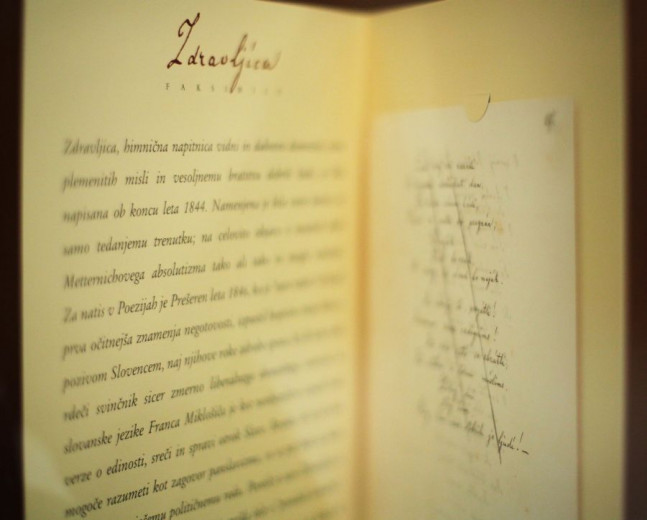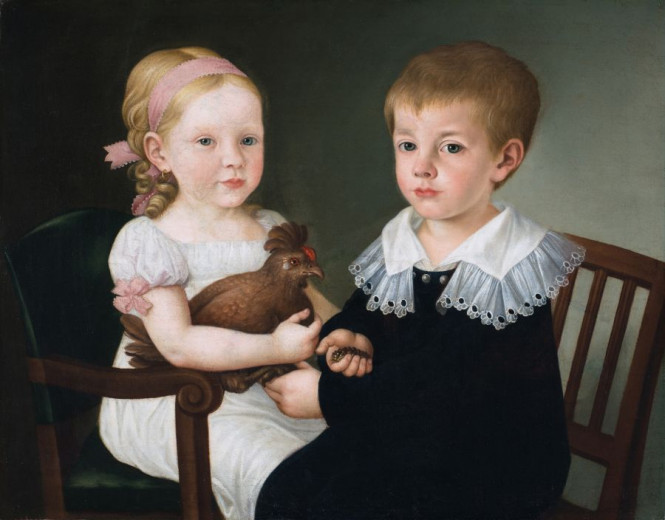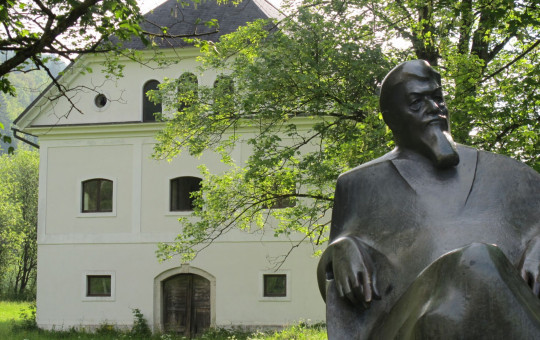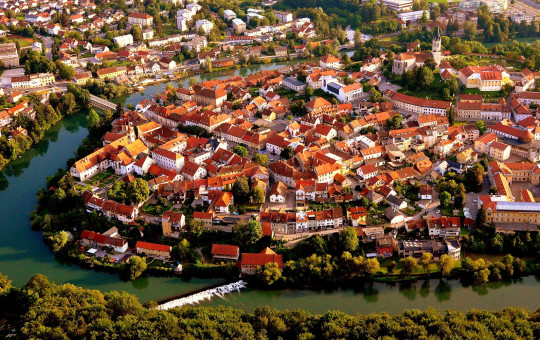On 8 February, Slovenia celebrates Prešeren Day – a national public holiday and a work-free day. It pays tribute and is dedicated to the memory of our greatest poet, Dr France Prešeren, an artist without whom Slovenian poetry simply cannot be imagined. Prešeren was the first poet to raise Slovenian to the level of artistic language, thus placing himself alongside the greatest European romantic poets.
France Prešeren was born on 3 December 1800 as the family’s third child and first son. The Prešerens, an unpretentious family of modest means, lived in the village of Vrba na Gorenjskem. Vrba lies to the north of the capital and offers beautiful views of the Julian Alps and the Triglav – the highest peak in Slovenia (at 2864 m).
And both Triglav and the poetry of France Prešeren rank among the central symbols of the Republic of Slovenia. Triglav is engraved on our national coat of arms and the seventh verse of Prešeren's poem A Toast was chosen for the national anthem, so Slovenians carry them deep in our hearts always and everywhere.
An excellent pupil and student of law
France was an exceptionally bright boy. His mother Mina, herself a well-read woman, wanted him to become a priest, as that profession was a tradition in the family. He was taught to read and write by his uncle Jožef, himself a priest, who sent France to primary school at the age of 10 and materially supported him for a long time.
Schooling caused him no problems – he was indeed an excellent student. In 1821 he set off for Vienna, where he first studied philosophy before enrolling in the law faculty of the University of Vienna a year later.
Many Slovenian intellectuals decided to study in Vienna at that time, as there was as yet no university in Slovenia. The first Slovenian university, in Ljubljana, was founded only in late 1919.
Prešeren completed his law studies in 1828, returned to Ljubljana and became a lawyer’s assistant. In September 1846 he was appointed as provincial lawyer in Kranj and thus finally became independent.
Unfulfilled love and loss of friends
In his relatively short life of 49 years, France Prešeren created a rich opus of the highest level. He wrote mostly in Slovenian, but also wrote several poems in German. He was already writing at the time of his studies but, self-critical by nature, did not show his poems to anyone for quite some time.
His poetry was strongly influenced by the unrequited love he nurtured for Julia Primic. He dedicated his most poignant love poems to her – Ghazals, A Wreath of Sonnets and Sonnets of Unhappiness.
Julija married France’s schoolmate, which devastated him. Prešeren’s unhappiness was further aggravated by the deaths of his closest friends, Matija Čop and Andrej Smole. It was under the influence of the former that France Prešeren turned to romanticism. And together with Smole, a linguist, literary historian and librarian, they planned to publish a political newspaper. Unfortunately the idea remained unfulfilled due to censorship and Smole’s premature death. Both friends died young, at the ages of 38 and 35 respectively. Prešeren dedicated to Matija Čop his poem Baptism at the Savica and also composed the epitaph for his tombstone.
Father of three daughters
Prešeren was not widely acknowledged as a poet during his lifetime, which is why he was often unhappy despite his relationship with Anna Jelovšek, with whom he had three daughters. The relationship did not intensify, but nevertheless France kept in close contact with them.
Ernestina Jelovšek, the second daughter of Ana and France, recorded the memory of her father in the book Spomini na Prešerna (Memories of Prešeren) and thus contributed greatly to 'prešerenism', now a recognised branch of literary history dealing with the life and works of Dr France Prešeren.
Dr Fig
Despite the fact that there was a lot of sadness in the life story of France Prešeren, there is a touching picture of him that earned him the nickname 'Dr Fig'. He always had the pockets of his heavy coat full of dried figs, which he generously shared out among poor children.
Date: 30. January 2020
Time to read: 2 min










